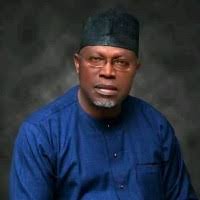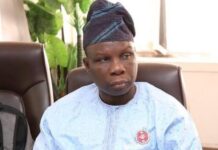Nigeria’s Political Landscape: Pathway to 2027 elections, by Arch Baba Isimi FNIA
In Defense of Reason
The upcoming march to the 2027 elections, with less than 18 months remaining, promises to be a captivating spectacle filled with intrigue and maneuvering. As we approach this pivotal moment, the usual undercurrents of political activity are becoming increasingly apparent. Many parties are gearing up to hold their national conventions, where we can expect a flurry of high-stakes political strategies to unfold.
The current president, Bola Ahmed Tinubu, is a wily and ruthless political veteran whose influence cannot be underestimated. He holds the keys to electoral victory through control of the Independent National Electoral Commission (INEC), the judicial system, and the power of incumbency. Tinubu has demonstrated his capability to leverage every instrument at his disposal to his advantage. However, it must be acknowledged that even the most formidable organizations or individuals often have their Achilles’ heels.
READ ALSO: Governance in Nigeria: A call for long-term vision and National unity, by Arch Baba Isimi FNIA
The ruling party, leveraging its incumbency, has demonstrated a notorious ability to interfere in the affairs of opposition parties. Their clandestine manipulation and influence are likely to make it challenging for any party to operate freely. The political landscape is already taking shape, with a strategic minister and a former governor playing crucial roles in shaping the main opposition party’s direction. Notably, the minister has designated the party’s candidate as the current governor of a key southwestern state, a move aimed at ensuring a weak opposition to the president.
Meanwhile, another governor, previously aligned with this minister, is actively consulting and campaigning for the presidency, collaborating with a controversial governor from the northwest as part of a joint ticket. The political heavyweights are sharpening their electoral strategies and preparing for the contest ahead.
Alhaji Atiku Abubakar, a perennial candidate and formidable presence, has yet to make significant waves in the current political climate. This may be his final attempt at the presidency, given his advanced age, if his stated age is accurate. He could face a crowded field of younger voters whose perspectives may not align with his traditional style. While he remains a significant candidate from the north, many in the southern regions and parts of the north are currently hesitant to support another northern candidate.
Peter Obi emerges as another key contender, buoyed by his passionate “Obidient” youth following, primarily concentrated in the southeastern region. His base also includes Christian Pentecostal groups and youth activists nationwide. However, the Labor Party, under which he ran in the last election, is grappling with internal crises that may hinder its recovery before the next election, prompting Obi to consider alternative platforms.
A compelling development on the horizon is the potential emergence of a coalition around former President Goodluck Ebele Jonathan (2010-2015). This coalition could evolve into a significant movement opposing the current APC government under President Tinubu, who played a pivotal role in unseating Jonathan in 2015. The dynamics of the 2015 election may be revisited, as the same northern voters who were swayed against Jonathan may now reevaluate their choices based on their experiences with both administrations.
Currently, Peter Obi and Goodluck Jonathan are the frontrunners. For Jonathan to gain an edge, a broad coalition of those opposed to the current government must unite behind him. However, forming such an alliance may prove challenging due to the ambitions, naivety, and inexperience of some aspiring contenders within Nigeria’s complex political landscape.
As it stands, the race for the presidency is wide open, especially given the APC government’s low approval ratings. The coming months will be crucial as candidates position themselves and voters assess their options. The interplay of power, strategy, and the ever-evolving political dynamics will shape the path to the 2027 elections.
Baba Isimi, FNIA, an architect, public affairs commentator and the Lead Convener National Integration Group, writes from Abuja.
Disclaimer
The opinions and views expressed in this article belong solely to the original author and other contributors. They do not necessarily reflect the official policy or opinions of Neptune Prime.
Follow the Neptune Prime channel on WhatsApp:
Do you have breaking news, interview request, opinion, suggestion, or want your event covered? Email us at neptuneprime2233@gmail.com





